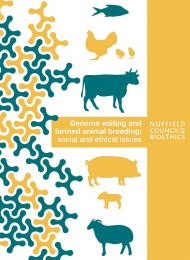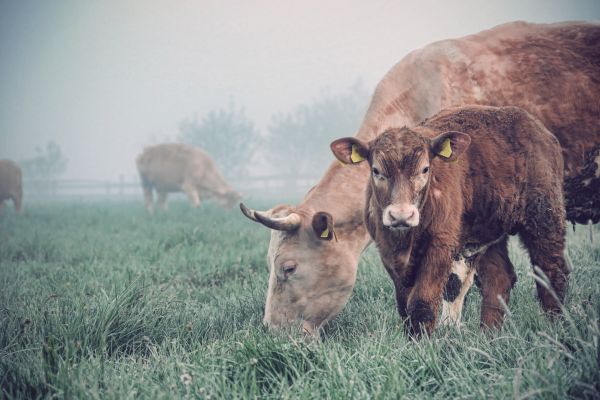Genome editing and farmed animal breeding: social and ethical issues
Report
Published 01/12/2021

Governance
See chapter 6 of the full report.
There are some gaps in the regulation of animal breeding in the UK. The breeding of animals in scientific research is regulated, as is the welfare of animals on farms. However, there is no regulatory framework, independent oversight, or national coordination of animal breeding companies and institutions, and there are gaps in the availability of information that is available about breeding practices and outcomes.
A lack of available and coordinated information in relation to the breeding of farmed animals makes it very difficult to assess important issues such as:
- The extent to which different breeding aims are actively being pursued.
- How successfully those aims have been achieved.
- The methods that are being used to achieve these aims.
The use of breeding indices, which aim to measure how the offspring of an animal are likely to diverge from what is considered normal for the breed, could be used to align breeding goals more closely with outcomes in the public interest.
UK Government proposals for the regulation of genetic technologies
In early 2021 the UK Government launched a consultation setting out plans to reform existing regulations that govern the use of genetically modified organisms (GMOs) in England.
In September 2021, in a response to the consultation, the UK Government announced it would seek to bring forward primary legislation at a suitable opportunity to amend the regulatory definitions of a GMO to exclude organisms that have genetic changes that could have been achieved through traditional breeding or which could occur naturally. This will mean that some genome edited organisms will not be regulated in the same way as genetically modified organisms. The Government has indicated it will allow time to consider the distinctive ethical questions that arise in relation to animal welfare before changes affecting animal breeding are made.

Conclusions in brief
In order to achieve a just and sustainable food and farming system we need a coherent and concerted policy context that aligns all aspects with the public good. This should take account not only of the predicted costs and benefits of breeding innovations but also the implications of their use for animal health and welfare, for the food and farming system, and for wider society.

Share